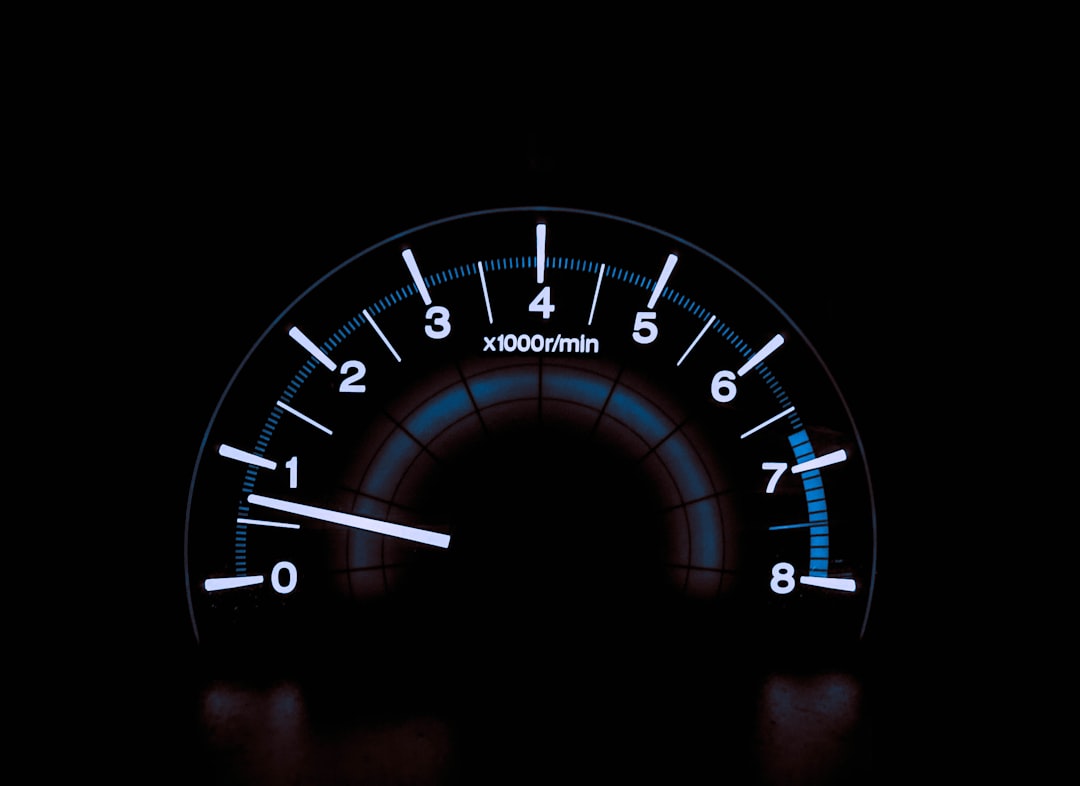Support our educational content for free when you purchase through links on our site. Learn more
Car Leases: 10 Irresistible Offers You Can’t Miss in 2025! 🚗✨
Are you ready to hit the road in style without the long-term commitment of ownership? Car leases offer a fantastic way to drive the latest models while enjoying lower monthly payments. In this article, we’ll explore 10 irresistible car lease offers that are turning heads in 2025! From fuel-efficient sedans to spacious SUVs, there’s something for everyone. Did you know that leasing can save you up to 30% on monthly payments compared to buying? Imagine what you could do with those extra savings!
Whether you’re a first-time leaser or a seasoned pro, we’ll guide you through the ins and outs of car leasing, helping you find the best deals tailored to your needs. Buckle up as we dive into the world of car leases!
Key Takeaways
- Leasing vs. Buying: Leasing often provides lower monthly payments and access to newer models.
- Mileage Limits: Most leases come with mileage restrictions; exceeding these can lead to fees.
- Top Offers: Explore 10 top car lease offers that cater to various preferences and budgets.
- Negotiation Tips: Don’t hesitate to negotiate terms for the best deal possible.
- End-of-Lease Options: Understand your choices at the end of your lease, including purchasing the vehicle.
Ready to find your perfect lease? 👉 Shop the latest offers on Toyota Camry | Honda Accord | Nissan Rogue and more!
Table of Contents
Quick Tips and Facts
Understanding Car Leases: What You Need to Know
The Benefits of Leasing a Car vs. Buying
How to Choose the Right Car Lease for You
Top 10 Car Lease Offers You Can’t Miss
Exploring Popular Car Lease Deals: From Sedans to SUVs
- Camry Lease Deals: Why the Toyota Camry is a Top Choice
- Corolla Lease Deals: Compact and Affordable
- Prius Prime Lease Deals: Go Green with Style
- RAV4 Lease Deals: The Versatile SUV
- Tundra Lease Deals: Power Meets Comfort
Browse Offers for All Vehicle Types
Shopping Tools for Your Car Lease Journey
Helpful Links for Car Leasing
Understanding Lease Terms: What to Look For
Common Myths About Car Leasing Debunked
Tips for Negotiating Your Car Lease
What Happens at the End of Your Lease?
Setting Your Location for the Best Deals
Conclusion
Recommended Links
FAQ
Reference Links
Quick Tips and Facts
- Leasing vs. Buying: Leasing typically offers lower monthly payments and allows you to drive a new car every few years. However, you won’t own the vehicle at the end of the lease.
- Mileage Limits: Most leases come with mileage restrictions (usually 10,000 to 15,000 miles per year). Exceeding these limits can lead to hefty fees.
- Maintenance Coverage: Many leases include warranty coverage, which can save you money on repairs during the lease term.
- End-of-Lease Options: At the end of your lease, you can either return the vehicle, buy it, or lease a new one.
- Credit Score Impact: Your credit score can significantly affect your lease terms. A higher score often leads to better rates.
Understanding Car Leases: What You Need to Know
Leasing a car can feel like navigating a maze, but don’t worry, we’re here to guide you! 🚗✨
What is a Car Lease?
A car lease is essentially a long-term rental agreement. You pay to use the vehicle for a set period, usually 2-3 years, without the commitment of ownership. At the end of the lease, you return the car and can either lease a new one or buy the leased vehicle.
Key Components of a Lease
- Monthly Payment: This is based on the vehicle’s depreciation, interest rate, and any fees.
- Residual Value: The estimated value of the car at the end of the lease term. A higher residual value means lower monthly payments!
- Mileage Allowance: Typically set at 10,000 to 15,000 miles per year. Exceeding this can cost you!
- Lease Term: Usually between 24 to 36 months.
Pros and Cons of Leasing
| Pros | Cons |
|---|---|
| Lower monthly payments | No ownership at the end |
| Drive a new car every few years | Mileage limits |
| Warranty coverage for repairs | Potential fees for wear and tear |
| Lower upfront costs | Customization restrictions |
The Benefits of Leasing a Car vs. Buying
When it comes to getting behind the wheel of a new ride, should you lease or buy? Let’s break it down! 🤔
Benefits of Leasing
- Lower Monthly Payments: Leasing often means lower payments compared to financing a purchase.
- Newer Models: You can drive the latest models with the newest tech and safety features.
- Warranty Coverage: Many leases include maintenance and warranty coverage, reducing unexpected repair costs.
Benefits of Buying
- Ownership: Once you pay off the car, it’s yours! No more monthly payments.
- Unlimited Mileage: Drive as much as you want without worrying about extra fees.
- Customization: Want to add a spoiler or change the interior? Go for it!
The Verdict
If you love driving new cars and prefer lower payments, leasing is a great option. If you want to own your vehicle and drive it for years, buying is the way to go!
How to Choose the Right Car Lease for You
Choosing the right lease can feel overwhelming, but we’ve got your back! Here’s a step-by-step guide to help you make the best decision. 🛠️
Step 1: Assess Your Needs
- Daily Commute: How far do you drive daily? This will help determine your mileage needs.
- Family Size: Do you need a spacious SUV or a compact car?
- Budget: What’s your monthly budget for a car payment?
Step 2: Research Models
Check out the latest models that fit your needs. Popular options include:
- Toyota Camry: Known for reliability and comfort.
- Honda CR-V: A versatile SUV with great cargo space.
- Tesla Model 3: An electric vehicle that’s eco-friendly and tech-savvy.
Step 3: Compare Lease Offers
Visit sites like Edmunds or TrueCar to compare offers. Look for:
- Monthly Payment
- Mileage Allowance
- Lease Terms
Step 4: Negotiate
Don’t be afraid to negotiate the terms of your lease! Dealerships often have wiggle room on pricing and fees.
Top 10 Car Lease Offers You Can’t Miss
Here’s a list of top car lease offers that are making waves in the automotive world! 🚙💨
- Toyota Camry: A midsize sedan that combines style and efficiency.
- Honda Accord: Known for its spacious interior and smooth ride.
- Nissan Rogue: A compact SUV with advanced safety features.
- Ford F-150: The go-to truck for power and performance.
- Chevrolet Equinox: A family-friendly SUV with great tech.
- Hyundai Tucson: Offers a stylish design and excellent warranty.
- Kia Sportage: A compact SUV with a sporty feel.
- Mazda CX-5: Known for its engaging driving experience.
- Subaru Outback: Perfect for adventure seekers with its all-wheel drive.
- Tesla Model Y: An electric SUV that’s eco-conscious and tech-savvy.
Exploring Popular Car Lease Deals: From Sedans to SUVs
Let’s dive deeper into some popular models that are perfect for leasing! 🚗💖
Camry Lease Deals: Why the Toyota Camry is a Top Choice
The Toyota Camry is a perennial favorite for good reason!
- Design: Sleek and modern, it’s a head-turner.
- Functionality: Spacious interior with user-friendly tech.
- Reliability: Known for its longevity and low maintenance costs.
Corolla Lease Deals: Compact and Affordable
The Toyota Corolla is the perfect compact car for city driving.
- Fuel Efficiency: Great gas mileage means fewer stops at the pump.
- Safety Features: Comes equipped with Toyota Safety Sense.
- Affordability: Lower monthly payments make it budget-friendly.
Prius Prime Lease Deals: Go Green with Style
The Toyota Prius Prime is the hybrid that’s turning heads!
- Eco-Friendly: Reduce your carbon footprint with this plug-in hybrid.
- Tech-Savvy: Features like a large touchscreen and advanced navigation.
- Incentives: Potential tax credits for eco-conscious drivers.
RAV4 Lease Deals: The Versatile SUV
The Toyota RAV4 is perfect for families and adventurers alike.
- Cargo Space: Plenty of room for gear and groceries.
- All-Wheel Drive: Great for tackling various terrains.
- Safety Ratings: High safety ratings give peace of mind.
Tundra Lease Deals: Power Meets Comfort
The Toyota Tundra is a full-size truck that doesn’t compromise on comfort.
- Towing Capacity: Perfect for hauling trailers or boats.
- Interior Comfort: Spacious cabin with premium materials.
- Durability: Built to last, even under tough conditions.
Browse Offers for All Vehicle Types
Ready to find your perfect lease? Check out the latest offers for all vehicle types! 🚘💰
- Sedans: Latest Sedan Lease Deals
- SUVs: Latest SUV Lease Deals
- Trucks: Latest Truck Lease Deals
Shopping Tools for Your Car Lease Journey
Navigating the leasing process can be easier with the right tools. Here are some must-haves! 🛒🔧
Online Calculators
Use online lease calculators to estimate your monthly payments based on the vehicle price, lease term, and interest rate.
Comparison Sites
Websites like Edmunds and Kelley Blue Book allow you to compare different lease offers and vehicle specifications.
Credit Score Check
Before you start leasing, check your credit score. A higher score can lead to better lease terms. For tips on improving your score, check out our article on Credit Score and Car Leasing.
Helpful Links for Car Leasing
Here are some resources to help you on your leasing journey! 📚✨
Understanding Lease Terms: What to Look For
When leasing a car, understanding the terms is crucial. Here’s what to keep in mind! 📜🔍
Key Terms Explained
- Capitalized Cost: The price of the vehicle plus any additional fees.
- Money Factor: The interest rate expressed in a different format. Multiply by 2400 to get the APR.
- Disposition Fee: A fee charged at the end of the lease for vehicle return.
Questions to Ask
- What is the mileage limit?
- Are there any additional fees?
- What happens if I want to buy the car at the end of the lease?
Common Myths About Car Leasing Debunked
Let’s bust some common myths surrounding car leasing! 💥
Myth 1: Leasing is Just Like Renting
Reality: While leasing is similar to renting, you’re still responsible for the vehicle’s condition and mileage.
Myth 2: You Can’t Customize a Leased Vehicle
Reality: While major modifications aren’t allowed, you can often add small accessories.
Myth 3: Leasing is Only for Luxury Cars
Reality: Leasing is available for a wide range of vehicles, from economy cars to luxury models.
Tips for Negotiating Your Car Lease
Negotiating your lease can save you money! Here are some tips to get you started. 💰🤝
Do Your Research
Before heading to the dealership, research the vehicle’s market value and current lease offers.
Be Prepared to Walk Away
If the deal doesn’t meet your expectations, don’t hesitate to walk away. There are plenty of options out there!
Ask About Incentives
Inquire about any manufacturer incentives or special promotions that could lower your costs.
What Happens at the End of Your Lease?
As your lease term comes to an end, here’s what you need to know! ⏳🔑
Return the Vehicle
You’ll need to return the vehicle to the dealership. Make sure it’s in good condition to avoid extra fees.
Purchase Option
If you’ve fallen in love with your leased car, you may have the option to buy it at its residual value.
Start a New Lease
If you’re ready for a new ride, you can start the leasing process again!
Setting Your Location for the Best Deals
Finding the best lease deals can depend on your location. Here’s how to set your location for optimal offers! 🌍📍
Local Dealerships
Search for local dealerships that offer competitive lease deals. Websites like AutoTrader can help you find nearby options.
Regional Promotions
Many manufacturers have regional promotions, so be sure to check for any local incentives.
Conclusion

Leasing a car can be a fantastic option for those who love driving new vehicles without the commitment of ownership. By understanding the ins and outs of car leases, you can make informed decisions that suit your lifestyle and budget. Remember to do your research, compare offers, and negotiate your terms for the best deal! 🚗💨
Recommended Links
FAQ

Q: Can I lease a used car?
A: Yes, some dealerships offer used car leases, but options may be limited.
Q: What happens if I exceed my mileage limit?
A: You’ll typically pay a fee for each additional mile over the limit.
Q: Can I get out of my lease early?
A: Yes, but it may involve penalties. Always check with your leasing company.
Reference Links
Conclusion

In summary, leasing a car can be a fantastic option for those who enjoy driving new vehicles without the long-term commitment of ownership. With benefits like lower monthly payments, warranty coverage, and the ability to drive the latest models, leasing offers flexibility and convenience. However, it’s essential to be aware of potential downsides, such as mileage limits and the lack of ownership at the lease’s end.
Positives of Leasing:
- Lower Monthly Payments: Enjoy driving a new car without breaking the bank.
- Newer Models: Access to the latest technology and safety features.
- Warranty Coverage: Many leases include maintenance, reducing unexpected repair costs.
Negatives of Leasing:
- Mileage Restrictions: Exceeding your mileage limit can lead to costly fees.
- No Ownership: At the end of the lease, you return the vehicle without any equity.
- Customization Limits: You can’t make significant modifications to the car.
Our confident recommendation? If you love the idea of driving a new car every few years and prefer lower payments, leasing is a great choice! Just be sure to read the fine print and understand your lease terms. Now that you’re equipped with all this knowledge, you can confidently navigate the leasing landscape! 🚗💨
Recommended Links
- 👉 Shop Toyota Camry on: Toyota Official Website
- 👉 Shop Honda Accord on: Honda Official Website
- 👉 Shop Nissan Rogue on: Nissan Official Website
- 👉 Shop Ford F-150 on: Ford Official Website
- 👉 Shop Chevrolet Equinox on: Chevrolet Official Website
- 👉 Shop Hyundai Tucson on: Hyundai Official Website
- 👉 Shop Kia Sportage on: Kia Official Website
- 👉 Shop Mazda CX-5 on: Mazda Official Website
- 👉 Shop Subaru Outback on: Subaru Official Website
- 👉 Shop Tesla Model Y on: Tesla Official Website
FAQ

What is a car lease and how does it work?
A car lease is a long-term rental agreement where you pay to use a vehicle for a set period, typically 2-3 years. At the end of the lease, you return the car to the dealership. You are responsible for the vehicle’s condition and mileage during the lease term.
Read more about “Unlocking Your Tesla Lease Buyout: 7 Essential Insights 🚗 …”
What are the advantages of leasing a car versus buying?
Leasing offers lower monthly payments, access to newer models with the latest technology, and warranty coverage for repairs. It allows you to drive a new car every few years without the long-term commitment of ownership.
Read more about “Can You Lease a Car and Not Buy It? 7 Essential Insights 🚗 …”
What are the disadvantages of leasing a car?
The main drawbacks include mileage restrictions, no ownership at the end of the lease, and limitations on customization. Additionally, you may incur fees for excessive wear and tear.
Read more about “How Much is a Lease on a Tesla? 7 Key Factors to Consider! 🚗 …”
How is the monthly payment on a car lease calculated?
Monthly payments are based on the vehicle’s depreciation, the lease term, the interest rate (money factor), and any additional fees. The capitalized cost (the price of the vehicle) also plays a significant role in determining your payment.
Read more about “How Do You Calculate a Car Lease Payment? 10 Essential Steps to Save Big! 🚗💰”
What credit score is needed to lease a car?
While requirements vary by lender, a credit score of 700 or higher is generally considered good for leasing. A higher score can lead to better lease terms and lower monthly payments.
Read more about “What credit score is needed to lease a car?”
What happens at the end of a car lease?
At the end of your lease, you can return the vehicle, purchase it at its residual value, or start a new lease. Make sure to check for any excess mileage or wear-and-tear fees before returning the car.
Read more about “How Much Does It Really Cost to Lease a Tesla Model 3? 🚗💰 …”
Can you negotiate a car lease?
Yes, you can negotiate the terms of your lease, including the capitalized cost, money factor, and any fees. Researching current offers can give you leverage during negotiations.
Read more about “What is the Lowest Term for a Car Lease? 🚗 7 Essential Insights for 2025”
Are there any hidden fees when leasing a car?
Yes, potential hidden fees can include acquisition fees, disposition fees, and charges for excess mileage or wear and tear. Always read the lease agreement carefully to understand all costs involved.
Read more about “Mastering Tesla Lease Mileage Limits: 7 Essential Insights 🚗 …”
Is it possible to get out of a car lease early?
Yes, but it may involve penalties. Some dealerships offer lease buyout options, while others may allow you to transfer your lease to another party.
Read more about “What is 0% Leasing? 7 Essential Insights You Need to Know! 🚗 …”
What is the difference between a closed-end and open-end lease?
A closed-end lease limits your financial liability to the agreed-upon residual value, meaning you won’t owe anything if the car is worth less at lease end. An open-end lease, on the other hand, requires you to pay the difference if the vehicle’s value is lower than expected.
Read more about “Unbeatable Best Car Lease Deals with No Money Down: 10 Options for 2025 🚗”
How does mileage affect a car lease?
Most leases come with mileage limits (usually 10,000 to 15,000 miles per year). Exceeding this limit can result in costly fees, so it’s important to estimate your driving habits accurately before signing a lease.
Read more about “How Much is a Tesla Model 3 Per Month? 🚗 7 Essential Insights …”
What insurance is required when leasing a car?
Leasing companies typically require you to carry comprehensive and collision insurance, as well as liability coverage. It’s essential to check the specific requirements of your leasing agreement.
Read more about “What Credit Score Do You Need to Lease a Car? 🚗 7 Key Insights …”



